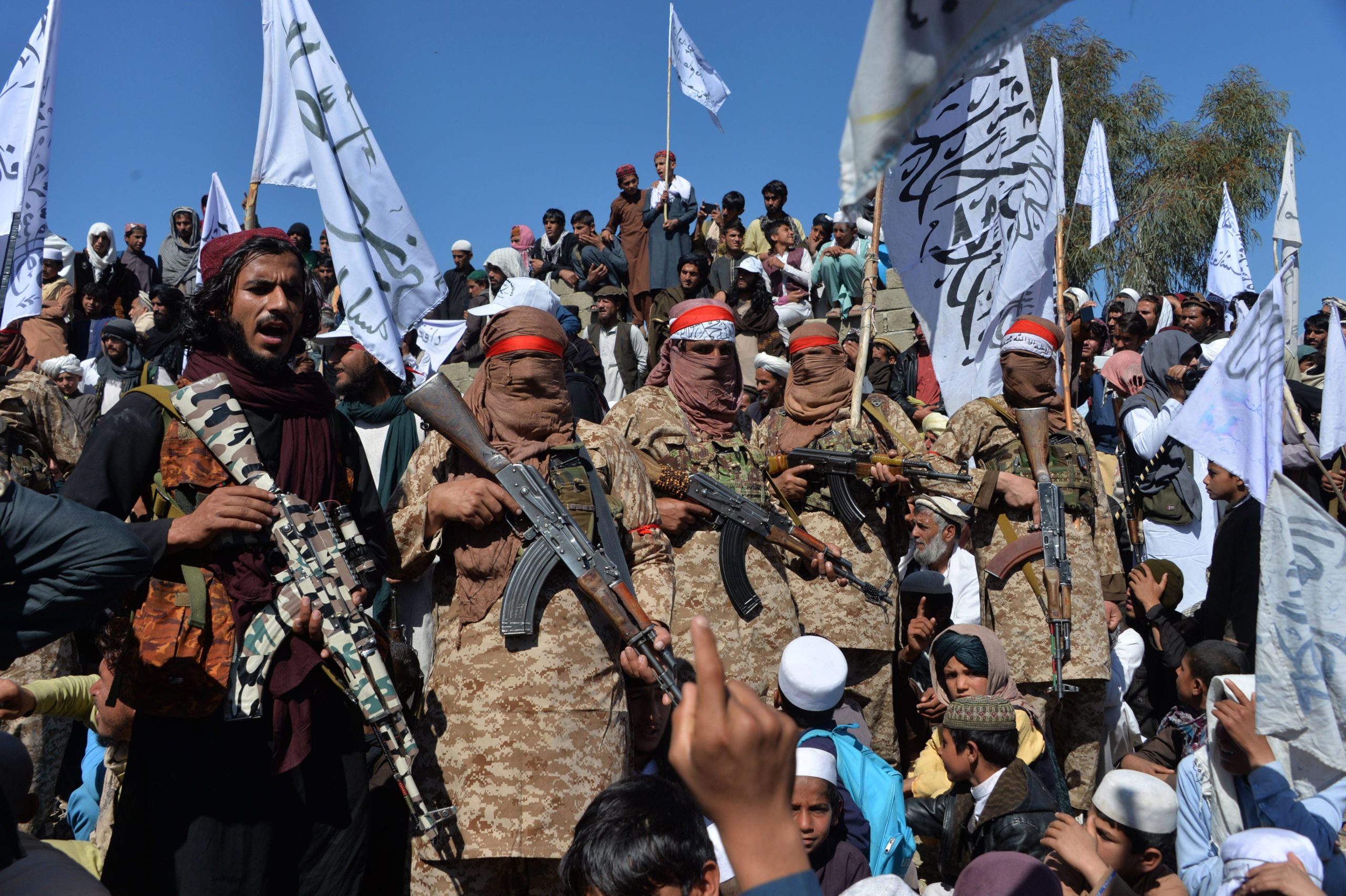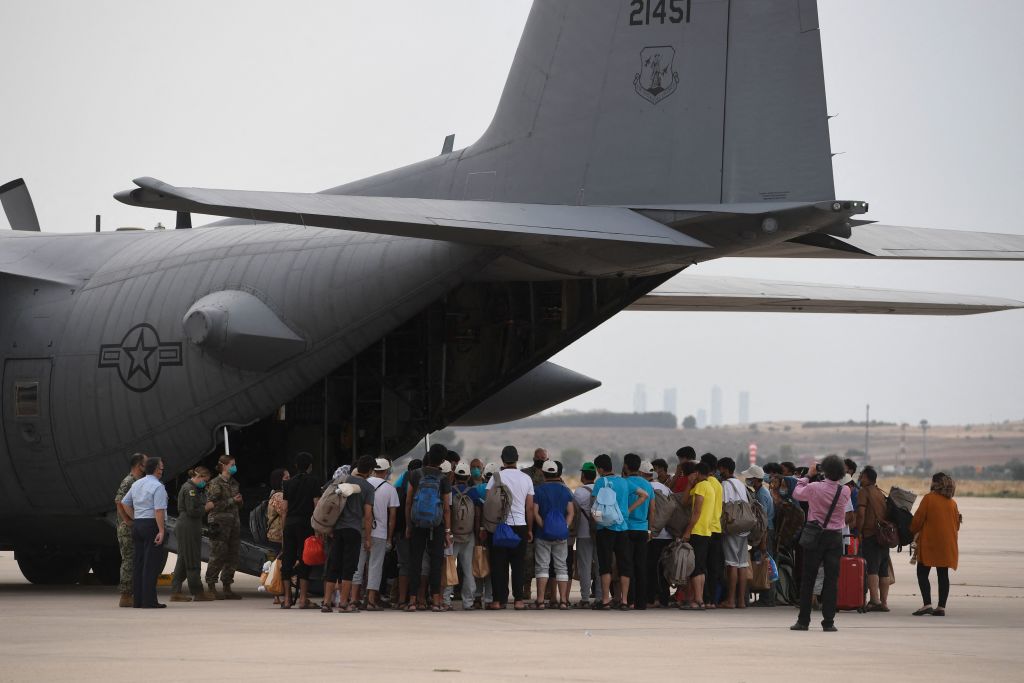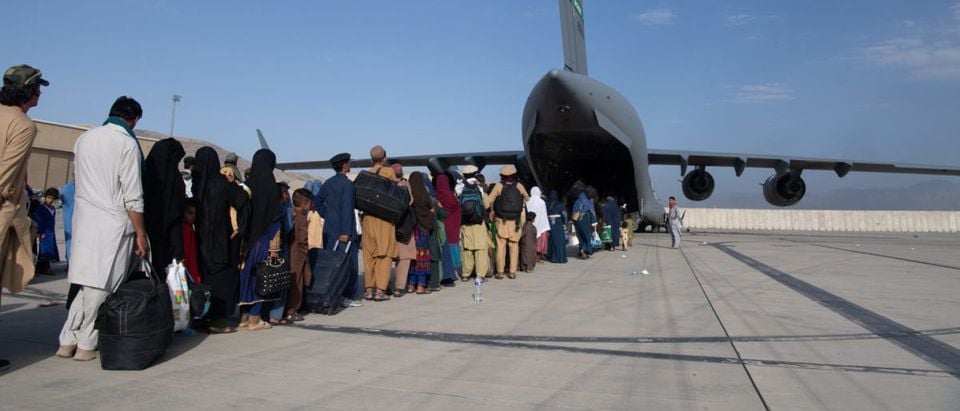As the world watches in horror, the leaders of history’s mightiest country are begging a terrorist group not to harm defenseless Americans left in a crumbling, trillion-dollar trap of our own design. Considering we hold all the receipts, it’s worth asking how we got here. The main problem, of course, is President Joe Biden’s botched withdrawal. It’s scary that the people running our country can be that incompetent. Pulling out American troops before the safe withdrawal of American citizens would be a hilarious concept if it weren’t what actually happened. Leaving sophisticated American military technology for these terrorists is equally mind-boggling.
If America has any hope of moving beyond its current depressed state, we each need to look introspectively at the role we have had in our own decline. In Afghanistan, as with most issues, there’s plenty of blame to go around. The two opposite sides of the Afghanistan debate are the nation-building crowd and the “no forever wars” crowd. Biden’s blunder aside, there are questions each side should be asking themselves that they probably aren’t.
First, those who pushed for nation-building in Afghanistan should explain how the past 20 years were worth the money and, more importantly, the lost lives. After 9/11, America had a right, even an obligation, to target al-Qaida and remove the Taliban government that supported it. However, the failed democracy-building exercise in the wake of that justified action cost too much money and left too many American soldiers killed and injured. It was never going to work.

TOPSHOT – Afghan Taliban militants and villagers attend a gathering as they celebrate the peace deal and their victory in the Afghan conflict on US in Afghanistan, in Alingar district of Laghman Province on March 2, 2020.(Photo by NOORULLAH SHIRZADA / AFP) (Photo by NOORULLAH SHIRZADA/AFP via Getty Images)
In his memoir, President George W. Bush said we “had a strategic interest in helping the Afghan people build a free society,” because “a democratic Afghanistan would be a hopeful alternative to the vision of the extremists.” The problem, now proven, is America does not have the ability to create liberty-loving democracies out of whole cloth. Bush himself said this during the 2000 election, when he specifically campaigned against nation-building. The idea of trying it out in a place as complicated, divided and corrupt as Afghanistan was borderline insane. For America to move forward, those who pushed the nation-building policies should be willing to engage directly on what happened and on what they have learned about America’s limitations. (RELATED: Here’s What The US Needs To Do To Support Afghan Allies, Veteran And Former Bush Official Says)
On the other extreme is the crowd railing against “forever wars.” After the blunders in both Iraq and Afghanistan, most Americans want a reduced role overseas. The risk is that the reaction to excessive American interventionism is excessive American isolationism. The post-World War II era, defined by muscular U.S. leadership and advanced U.S. troop deployment in many places around the world, has been successful by historic standards. The world is always a mess. But you can’t look at the past 70 years compared with the 70 prior and argue that U.S. leadership hasn’t added stability and saved lives. U.S. leadership has not been perfect, but it has been better than any other alternative.
After spending too many years, lives and dollars, the U.S. war in Afghanistan largely ended during the Trump administration. Since then, we have had a very small number of U.S. troops involved primarily in advisory and coordinating roles. This doesn’t excuse the years of mistakes or make the losses worthwhile, but the gains were worth preserving. In the past year or so, the situation in Afghanistan had largely stabilized with as few as 2,500 American troops on the ground. The Afghan army that the U.S. trained, the one that folded like a tent once we withdrew, was largely able to hold its own with guidance, coordination and leadership from the U.S. They had serious issues with corruption and leadership, but their biggest problem was their complete dependence on U.S. technology. The U.S. military trained them that way. It’s in America’s interest to disrupt groups like al-Qaida and ISIS; having an Afghan army to do it for us (with U.S. coordination) so American troops don’t die doing it is better than a lot of alternatives. (RELATED: ‘It Was Too Late’: Afghan Commander Says Army ‘Lost Its Will To Fight’ After US ‘Betrayal’)

Refugees board a US aircraft heading to Germany, after being evacuated from Kabul during an evacuation flight, at the Torrejon de Ardoz air base, 30 km from Madrid, on August 24, 2021. (Photo by PIERRE-PHILIPPE MARCOU / AFP) (Photo by PIERRE-PHILIPPE MARCOU/AFP via Getty Images)
The U.S. has thousands of troops stationed all over the world. Europe is still full of U.S. troops. Parts of Asia are as well. Yet nobody is claiming World War II or the Korean War are forever wars. When did zero American troops on the ground become the standard, and is that a standard we really want? Those are questions the “no forever wars” crowd needs to answer. If we could have held a small base in Afghanistan and kept 2,000 troops as advisers to hold off the Taliban, would that have been better than what we have now? On the flip side, if we do face a renewed terrorist threat in Afghanistan after full U.S. withdrawal, are we going to be able to counter it effectively? Will cruise missiles from thousands of miles away really be enough? We can’t fly our bombers over without risking conflict with a neighboring country. None of that is easy.
History is often a series of corrections turning into overcorrections. The reality is that neither side is 100% right or wrong. The U.S. needs to act with far more caution and respect for the American people’s hard-earned tax dollars, the lives of the soldiers we put in danger and the difficulty of entanglements overseas. However, this can’t mean that the standard is action only with no risk at all to U.S. troops (as Biden seems headed for in Afghanistan). In Afghanistan, a counterterror operation turned into nation-building. Just because we’d learned that nation-building was not possible in a state like Afghanistan, should we have completely abandoned the original mission? Or should we have paired it down to something more realistic and sustainable? Leaving Islamic fundamentalists to rule in a vacuum is not ideal. We should have had this conversation years ago. Instead, we may be having it in the wake of the next terrorist attack we don’t see coming.
Neil Patel co-founded The Daily Caller, one of America’s fastest-growing online news outlets, which regularly breaks news and distributes it to over 15 million monthly readers. Patel also co-founded The Daily Caller News Foundation, a nonprofit news company that trains journalists, produces fact-checks and conducts longer-term investigative reporting. The Daily Caller News Foundation licenses its content free of charge to over 300 news outlets, reaching potentially hundreds of millions of people per month. To find out more about Neil Patel and read features by other Creators writers and cartoonists, visit the Creators website at www.creators.com
COPYRIGHT 2021 CREATORS.COM


